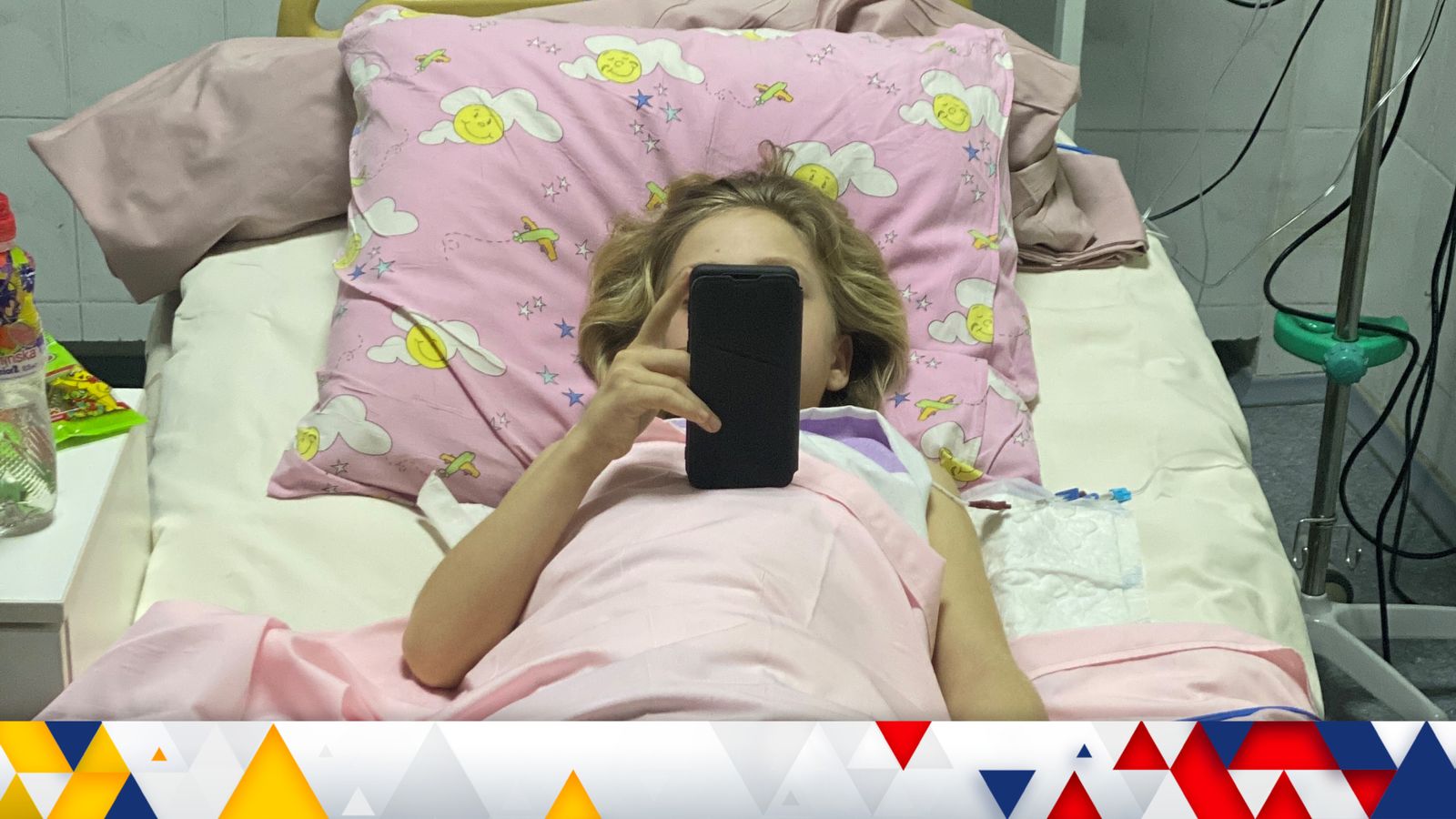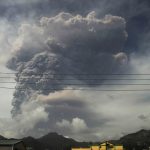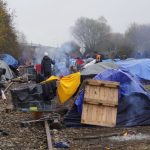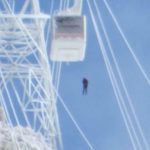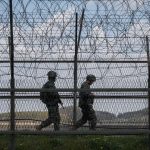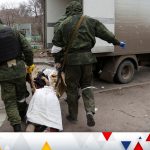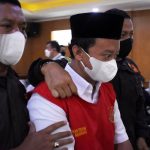It is a week since the bombing of the train station in Kramatorsk.
At a hospital in the city of Dnipro, doctors wanted to show us the cost of this war.
In the children’s ward, we met three young Ukrainians. The first was Yana. The 10 year old was at the station with her mother last Friday, fleeing the fighting further east.
She has lost her right leg below the knee, her left foot, and her mother.
Ukraine war live: Putin warns West of ‘very painful consequences’
In the bed next door, Katarina is 12. Doctors saved her badly injured legs. She too, though, lost her mother.
Goodness knows their trauma, and understandably doctors asked that we didn’t show their faces or interview them.
Ukraine war: Russian Black Sea flagship Moskva allegedly attacked by Ukrainians has sunk – defence ministry
Ukraine war: Heartbroken headteacher shares dream of rebuilding school destroyed by bomb blast
Russia threatens nuclear escalation if Sweden and Finland join NATO
But then what more needs to be heard?
In the next-door room, we met Andrei, 17. He too was at the station last week. His arm has been amputated at the elbow.
Read more: Russian Black Sea flagship Moskva allegedly attacked by Ukrainians has sunk
They were all with thousands as they tried to board trains in Kramatorsk to escape the danger further east when it was targeted by a missile.
There’s a quiet and a calmness in the hospital, but it’s not safe. The glass on the windows has tape across it. Wooden palates have been lodged into the window frames; preparation for whatever might come next.
Subscribe to Ukraine War Diaries on Apple Podcasts, Google Podcasts, Spotify and Spreaker
Dnipro acts as buffer for Ukraine
The city of Dnipro is split by a huge river. It acts as a fortunate buffer for Ukraine against any advance by the Russians from the east.
Driving around, it feels like a city on edge. The air raid sirens go off several times every day.
Mostly, they are false alarms.
For now, the whole city is firmly in Ukrainian control. But this week, Russian missiles hit the city’s newly-built international airport.
Block out the sirens and Dnipro feels like a place that was, before this war, on the up.
Follow the Daily podcast on Apple Podcasts, Google Podcasts, Spotify, Spreaker
Some of the old Soviet concrete apartment blocks have been repainted in bright colours.
There are new hotels, restaurants and a wonderful modern fresh food market. This was, and they pray, still is, a city with a future.
But the stories of displaced from the east, who they now host, have shaken them. Mariupol too had a future until just weeks ago. Now it’s an urban wasteland.
Providing refuge for all
On the east side of the river is the Dnipro branch of the Ukrainian Association for the Blind, a place that’s now a refuge for anyone who needs it.
Among them, three generations of one family from the country’s far east.
Olga Polynicheva told me that they spent 24 days underground in a bomb shelter. The bombs, she said, fell all around just outside.
When the electricity was cut they had no choice but to leave.
In the quiet of the corridor, we found Larysa Barvina from the town of Slovyansk.
She described this place as a heaven, and from the hell she escaped, it certainly is.
“There were a whole range of feelings,” she told me. “In my hands, my legs, my ears. The vibrations from the bombs.”
This is the experience of war for the blind.
‘Weapons, weapons, weapons’
Outside the city hall, we met the mayor, Borys Filatov. He doesn’t stay in one place for long. The Russians have said they will target command centres.
His office isn’t a military command centre but in Kharkiv, to the north-east, the Russians hit the administrative buildings. Mayor Filatov won’t take his chances.
“We need three things: weapons, weapons, weapons,” he told me, echoing his president, Volodymyr Zelenskyy.
Asked about the new approval for $800m worth of new weapons by President Biden, he said: “Yes – we are very happy and thank you to our Western friends but Western help is late, late and late.”
The challenges for Dnipro are huge. Caring for the wounded and the displaced, but also preparing, as much as they can, for the days ahead.
